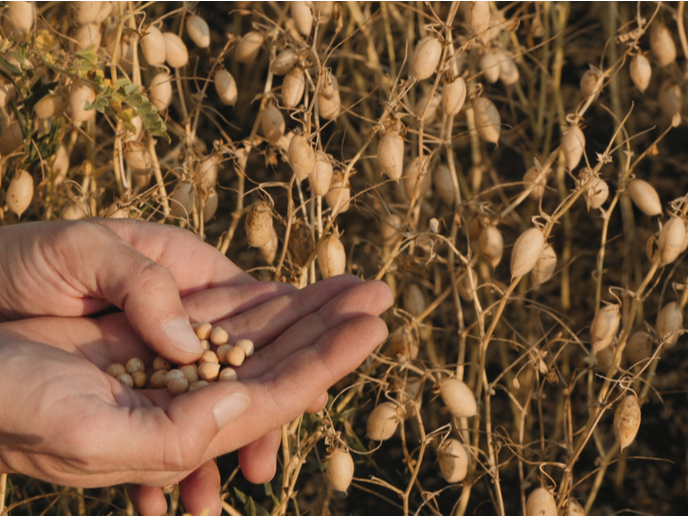Supporting the production and use of grain legumes
Wheat and other cereals reign supreme in Europe compared to other crop types, such as protein crops. This means that the EU must import a large amount of plant protein that is mainly used for feeding purposes. Donal Murphy-Bokern(opens in new window), a researcher focused on improving the use of natural resources in agriculture, says the key to breaking this circle of unsustainability is crop diversification. “Legume crops such as soybeans, faba beans and peas fix nitrogen from the air and are thus a source of natural fertiliser,” says Murphy-Bokern, highlighting their value to agroecological systems. “Furthermore, because they are protein-rich, legumes are a sustainable source of nutrition, especially protein, for both humans and livestock.” With the support of the EU-funded Legumes Translated(opens in new window) (Translating knowledge for legume-based farming for feed and food systems) project, Murphy-Bokern and his colleagues are working to help Europe transition towards more sustainable plant protein production. As a thematic network(opens in new window) the project connects subject matter experts and researchers from across Europe who, together, share knowledge, discover new insights and produce actionable results.
Practical data to support decision-making
With the goal of providing practical data that can support decision-making, the project has already delivered several important results. For example, it analysed the whole-farm impact of introducing legumes into cropping systems. “The insight of our members reminds us that it is not enough for legume-based products to be successful in consumer markets,” remarks Murphy-Bokern. “The legume crops themselves must be efficient and competitive within farms.” Furthermore, by analysing data gathered from whole cropping systems from real farms, partners found, for instance, that the faba bean is an economically viable option when planted in the water-retentive soils typical of north-western Europe, whereas soybeans are more economically viable in south-eastern Europe. “This means that the expansion of these crops in these regions can continue at relatively low cost to the taxpayer,” explains Murphy-Bokern. Murphy-Bokern goes on to explain that in many other regions, the production of cereals remains very competitive, making it more challenging for farmers to grow legumes as part of a move towards more sustainable systems. “Here, more public support is needed if farms are to diversify into producing legume crops,” he adds. Providing this much-needed support is the Legume Hub(opens in new window).
Improving legume-based value chains
“Legumes Translated is about empowering decision makers – from farmers to policymakers, with knowledge to improve legume-based value chains,” says Murphy-Bokern. “As a community for sharing knowledge and understanding, the Legume Hub brings together all stakeholders working to develop more sustainable food systems.” Led by the European Legume Hub Association and implemented by Donau Soja(opens in new window), the Hub is a one-stop shop for timely, scientifically validated and comprehensive information for anyone – scientists, plant breeders and farmers – interested in improving legume production in Europe. “Our hope is to position the Hub as an attractive, self-publishing platform for all things legumes – the ResearchGate or Wikipedia of legumes if you will,” concludes Murphy-Bokern. “If we achieve this, then our work will have an impact well beyond the project itself.”







